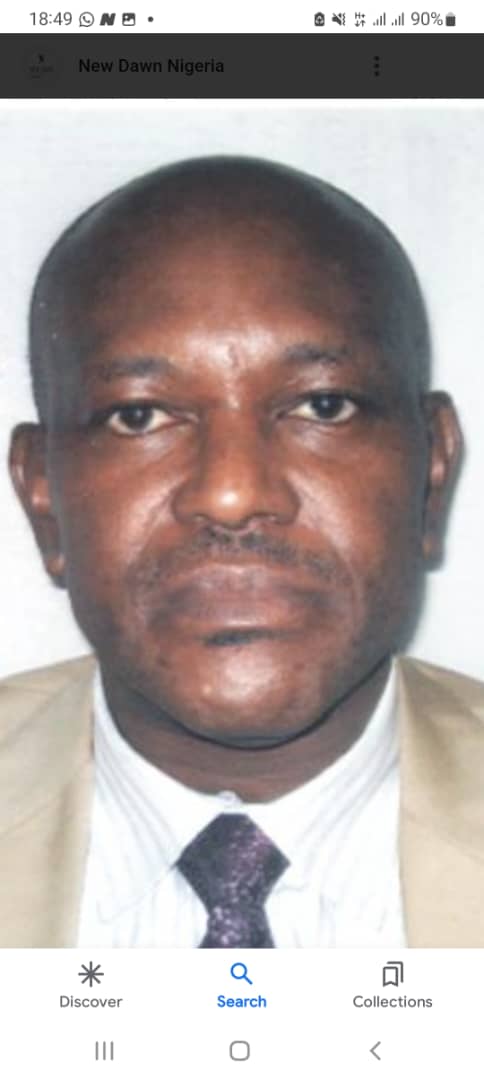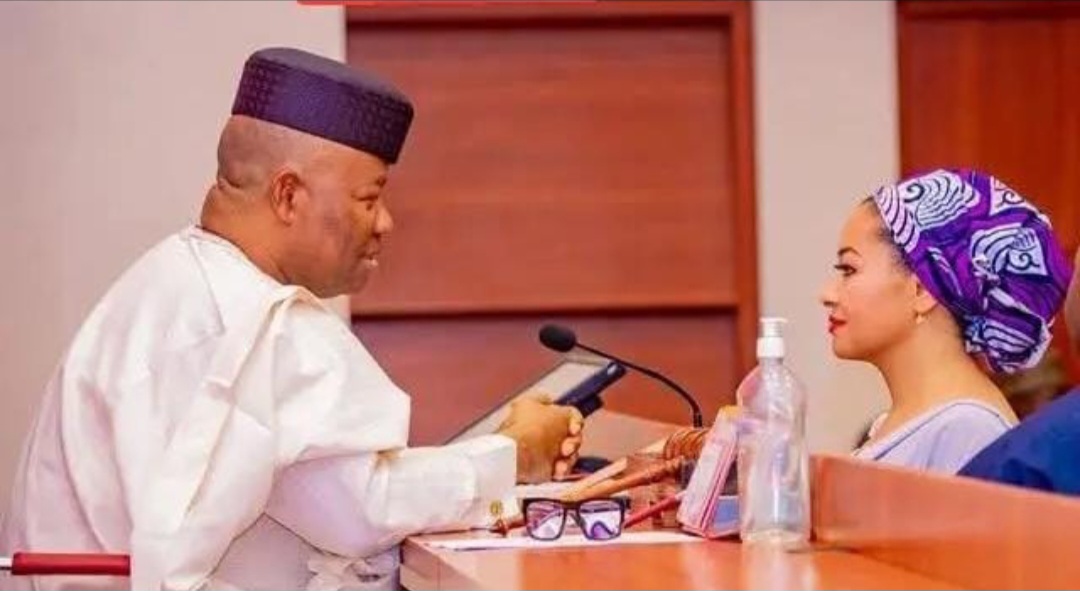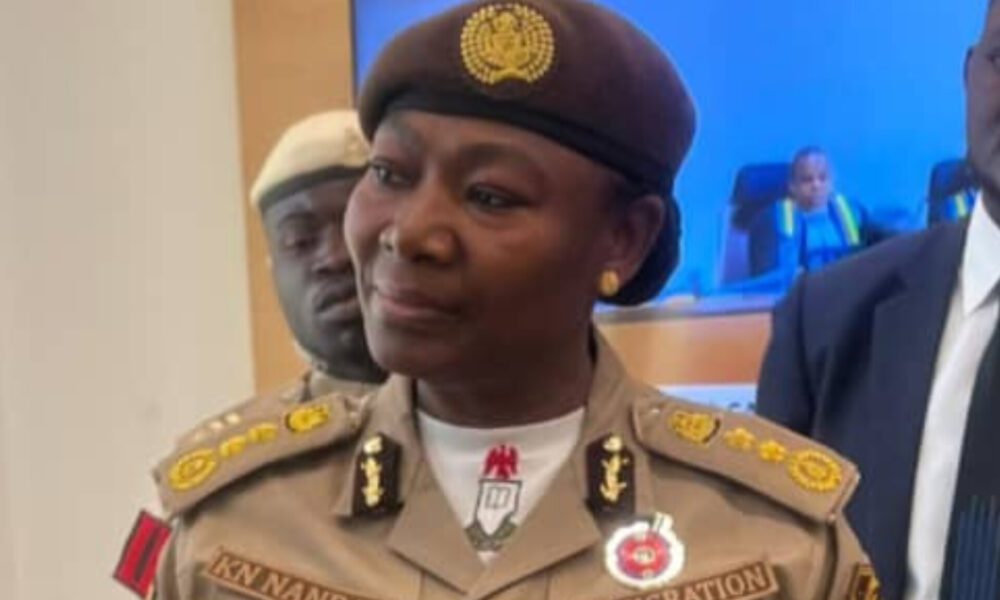By Ehichioya Ezomon
It’s no surprise that Nigeria’s plethora of security agencies – due to their remarkable lack of capacity for intelligence gathering, and non-proactive approach to nipping potential untoward happenings in the bud – missed the planning and execution of the siege to the Government Secretariat in Ibadan, capital city of Oyo State, where so-called Yoruba Nation agitators hoisted their Flag for a proclaimed creation of “Democratic Republic of the Yoruba” on Saturday, April 13, 2024.
As one of the arrested (or surrendered) suspects – a 55-year-old lecturer at a Federal College of Education – revealed, membership of the Yoruba movement is spread across Yoruba-speaking states, noting that, “Our leaders went to all Yoruba-speaking states to serve officials letters written and we were given our copies. Then the proclamation was made and after the declaration, occupation, and notification to the world that Yoruba is an indigenous nation.”
Yet, overt and secret security operatives missed the publicised mobilisation for the agitators’ D-Day – or they never took it seriously, or were in cahoots with and sympathetic to their cause – until the storm almost blew in the faces of law-abiding citizens of Oyo State, the South-West and Nigeria at large.
Despite their “treasonable” felonious action – as pronounced by Oyo State Governor Seyi Makinde, and the state Commissioner of Police Adebola Hamzat – Nigerians should be grateful though that the armed agitators for a Yoruba Nation weren’t out for real mischief but a somewhat show of symbolism, knowing they’d be challenged eventually. Otherwise, there’d have been “wailing and gnashing of teeth,” as they wreak untold havoc before security operatives rouse themselves from inertia.
Forget the chest-beating by the governor on April 16 – when he received in his office the 46th General Officer Commanding the 2 Mechanised Division, Odogbo Barracks, Ibadan, Maj. Gen. Obinna Onubogu – that, “the Emergency Security Response was activated and it worked. The response was quick, and timely and I believe the hoodlums and miscreants met something that was beyond their imagination. Within one hour, everything was under control. And we are grateful for the timely response.”
Also, discountenance the Police bragadocio that, “the agitators turned violent and opened fire on the Police, and a detachment of Amotekun corps was present. The Police responded and were joined by Operation Burst Patrol teams and Personnel of other security agencies, who suppressed the treason and dealt with the agitators in line with Standard Operating Procedure (SOP).”
Wonders! If the agitators opened fire and the Police responded, how many people on both sides were injured or killed? None reported! lf the Police were that capable, efficient and alive to their responsibilities, why literally escort the heavily-armed “miscreants” – dressed in some sort of military camouflage – in their whirlwind journey to the Government Secretariat that houses the Governor’s Office and State House of Assembly, where they hoisted their Flag? Didn’t the Police guess they’re headed in that direction, and should’ve striven to cut them off before they got there?
And why did the Police ask the “miscreants to dispatch” (go away) until they “turned violent and opened fire” on operatives? Would the Police have allowed the agitators to go scot-free, if they’d dispersed “peacefully” from their intent to forcefully overthrow a democratically-elected government, in breach of the amended 1999 Constitution of Nigeria?
The efficiency or lack of it of Nigeria’s security architecture isn’t the theme here, but the near-universal condemnation of the agitators by the Yoruba, for bringing opprobrium to the ethnic group that’s the beacon of democracy and intellectual discourse of any issues that will reshape the structure of the Nigerian federation.
From the umbrella Yoruba socio-cultural organisation, Afenifere, to the Yoruba Council of Elders (YCE); from leading Yoruba Nation activists, Prof. Banji Akintoye of Ilana Omo Oodua Worldwide and Chief Sunday Adeyemo (alias Sunday Igboho) (who distanced themselves from the invasion), to Governor Makinde and his government; and from former Military Governor and ex-Deputy National Chairman of the PDP, Chief Olabode George and other prominent Yoruba individuals and groups, it’s wholesale repudiation of the Yoruba Nation agitators, their leaders and sponsors.
The denial of involvement by Igboho and Akintoye is germane because of their prime leadership role in and links to the struggle for Yoruba self-determination. Reacting via a Facebook Live, Igboho said: “I know nothing about it (invasion) and I don’t know those behind it… Any person that said he is agitating for Yoruba Nation and is going to attack government facilities, that person or group is on his own; I don’t know anything about it.”
Similarly, Akintoye alleged that another separatist leader (name withheld) was behind the incident in Oyo State, saying, “I have spoken to Sunday Igboho. Some people sent them (agitators) to make sure that they disrupt the Yoruba self-determination struggle. I was informed a few minutes ago that some people… have come to take over the government of Yorubaland, and that they have arrived in Ibadan. We, in this struggle, don’t act in that manner.”
Top on the series of excoriation came on April 17 from President Bola Tinubu – a Yoruba and unarguably one of the most influential pro-democracy activists of this generation – who, read the riot act to the agitators and similar cohorts that, those threatening Nigeria’s sovereignty “will have a price to pay.”
Tinubu, hosting a delegation of Afenifere at the State House, Abuja, including its leader, Pa Reuben Fasoranti, and Oba Olu Falae – on a solidarity visit aftermath of the Yoruba Nation agitators’ invasion of Oyo – said that, “I am irrevocably committed to the unity of Nigeria and constitutional democracy. Those who think they can threaten the sovereignty of Nigeria will have themselves to blame. They have a price to pay. And we are not going to relent.”
Besides the Police declaring wanted the alleged “mastermind” and a former wife of the winner of the military annulled June 12, 1993, presidential election, the late Chief Moshood Kashimawo Olawale (MKO) Abiola (GCFR) – whose family members have disowned the woman’s action in what many concerned Yoruba describe as a “coup d’etat” that should be punished under the relevant laws – the Oyo State government, by court orders, has demolished a building identified as “operational base” of the Yoruba Nation agitators, and several other buildings used as hideouts in Ibadan.
Till this moment – over one week after the brazing incident in Ibadan – no Yoruba leader or group has backed the effrontry of the agitators. There’ve been no charge by the agitators or their supporters and sympathisers that they’re put down forcefully by the federal and state governments, and security agencies.
No allegations of scores or hundreds of the agitators killed and injured, and no claims of suppression, victimisation, marginalisation and ethnic cleasing of the Yoruba race in Nigeria. No malicious reports to, and calls for intervention of external bodies, such as the Economic Community of West African States (ECOWAS), African Union (AU), Commonwealth of Nations, United Nations, and the International Criminal Court (ICC).
No calls on the United States, United Kingdom, Germany, France, Canada, Australia and Japan to exert their political, economic, diplomatic and military powers on Nigeria and back the agitators for a Yoruba Nation. Nor have there been calls on the Nigerian military to overthrow the government of President Tinubu for threatening to deal with those troubling the territorial integrity of Nigeria.
What Nigerians have heard and seen so far – and which’s worthy of emulation by other sections of the country – is the Yoruba leading by example on how individuals and groups should conduct themselves in a complex multi-ethnic, multi-cultural and multi-linguistic society as Nigeria’s for a peaceful and harmonious coexistence.
It’s apt to quote a post on X (formerly Twitter) by a social commentator and best-selling author, Mr. Reno Omokiri, @renoomokiri, on the Yoruba Nation agitators’ saga. He states that, “to understand why the Yoruba are the most influential and the wealthiest people in Nigeria, study how they (not the Federal Government) dealt with the so-called Yoruba Nation agitators, who tried to cause havoc and chaos in Ibadan last week.”
“First of all, the families of those involved publicly denounced them. In fact, one of the affected families took out an advert. That is to show you social responsibility at the family level,” Mr Omokiri says.
“Then, the society rose against them, with community members forging them out and pointing out their properties and hideouts to the authorities. That demonstrates social cohesion and a society with a secure moral fabric. Secessionists can only operate where there is local support. If there is no local support, they will evaporate.
“Next, the State Government did not wait for the Federal Government or their agencies. In less than a week, they had arrested all of those involved, demolished their properties and brought criminal charges against them. That is evidence of a responsible sub-national government.
“No prominent Yoruba came out to make excuses for these agitators, or sympathise with them. As a unit, they called them by their names – miscreants. They did not even call them Unknown Miscreants (nobody is unknown to the community, except the community wants to hide behind one finger). They named and shamed them!”
The totality of how the Yoruba rose to the occasion of the agitators’ storming of Oyo is located in “Omoluwabi” (Omoluabi) – a cultural concept that’s native to the Yoruba people. It’s used to describe a person of good character.
The omoluabi concept, according to Wikipedia, “signifies courage, hard work, humility and respect. An omoluabi is a person of honour who believes in hard work, respects the rights of others, and gives to the community in deeds and in action. Above all, an omoluwabi is a person of integrity.”
So, in the context of the episode in Ibadan – and the pre-cautionary measures put in place in other South-West states – an omoluwabi isn’t irrational and disruptive, but calculative and deliberative in choosing and applying intellect and persuasion over brawn that’s wilfully displayed by the Yoruba Nation agitators.
As a tweep notes in response to the @renoomokiri post, “People that bring shame to their families are called ‘ọmọ àlè’ (derogatorily, an illegitimate child, bastard) in Yoruba. Ordinarily, a properly brought-up Yoruba son brings honour to his family. We don’t do blame game in Yoruba land, we call a spade a spade. A Yoruba mother will give away (hand over) her own son if he breaks law.”
Another tweep says, “If other regions in the nation adopted this kinetic and proactive approach – terrorism, kidnapping, banditry, and other criminal vices will be reduced in the society. Will tribalism, ethnicity and religion sympathy allow them to think deeply?”
That’s the big question, as the government and security agencies delve into the remote and immediate causes of the Yoruba Nation agitators’ activities on April 13! As noted by Gen. Onubogu during his visit to Governor Makinde, “We are indeed in a period of security challenges… This incident is unfortunate, as it shows that despite the peace that exists in Oyo State, there are still sons and daughters of South-West Nigeria, who are bent on challenging Oyo State, the entire South-West as well as Nigeria as a whole.
“I have taken note of some of the gaps that preceded this incident and I want to assure you that under my watch, we will play our part to ensure that such a situation does not arise again. As our adversaries have made their intentions known, it will be foolhardy for us not to refocus and ensure the people of Oyo remain safe.”
Investigations into the invasion shouldn’t be farfetched, as some of the arrested agitators have given the investigators leads to follow. A female agitator said those who sponsored the invasion promised to put an end to starvation in her life, adding, “the sponsors promised me and my entire family that they would empower us and that our future would be assured. Starvation would no longer be in our lives and that cost of living would automatically come down.”
Another suspect didn’t regret his action, stressing, “We all know that nothing is working in Nigeria and things are hard for everyone except those in government. We were at the Secretariat waiting for our leader to come and address us. We believe our leader knows much about the law and so we were not afraid to join when we were called upon. Our leaders told us that all challenges Yoruba are facing shall be addressed if we achieve our aim.”
And from Ondo State, where precautionary measures were taken to forestall any similar incident, a group of “Yoruba Nation Youths,” both Home and Diaspora, has told the state government – and insisted that – “they are not terrorists but a legitimate group of youths demanding Yoruba Nation, self-determination and independence.”
In closing, Governor Makinde’s words to Gen. Onubogu resonates: “Concerning the unfortunate incident, what I can say is that we must win the war, but we must also win peace. It is a challenging period!” Absolutely challenging times for Nigerians and the entire country!
Mr Ezomon, Journalist and Media Consultant, writes from Lagos, Nigeria




